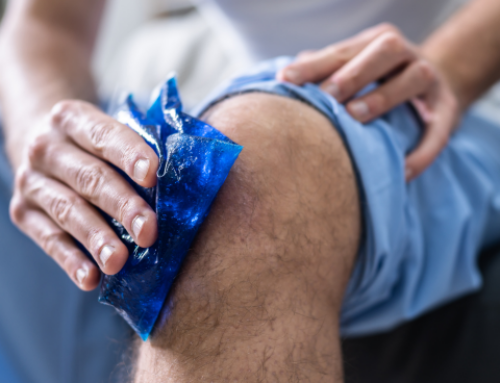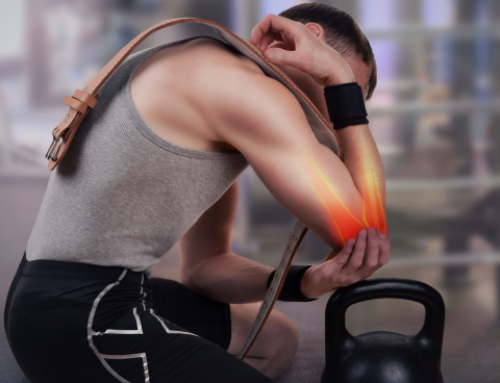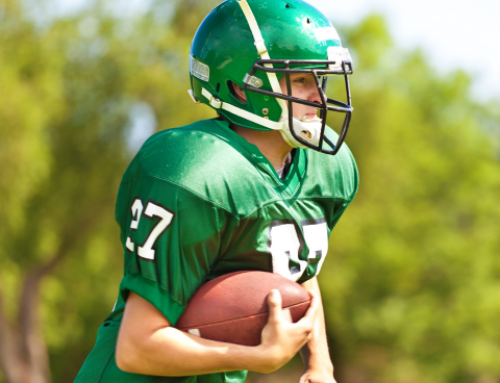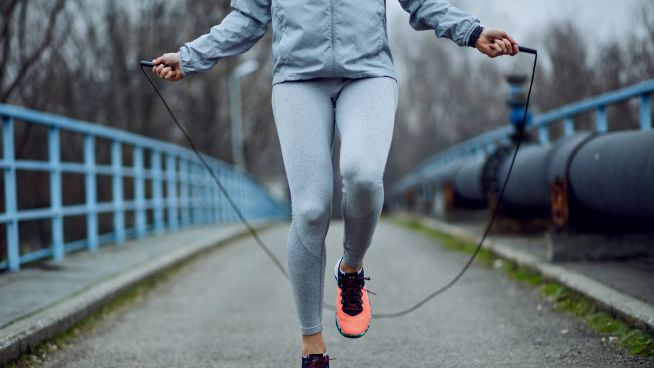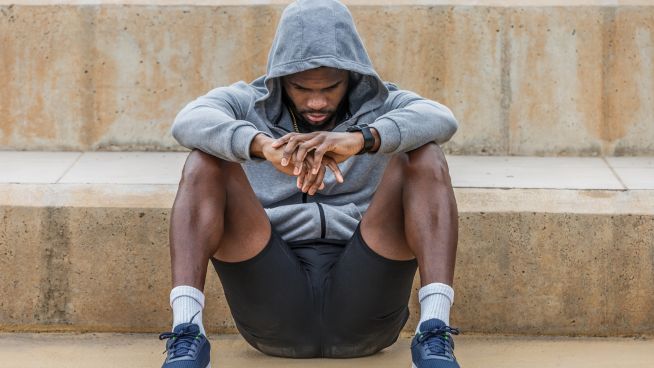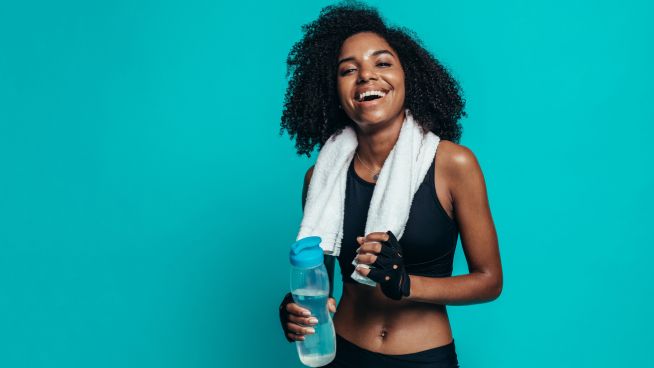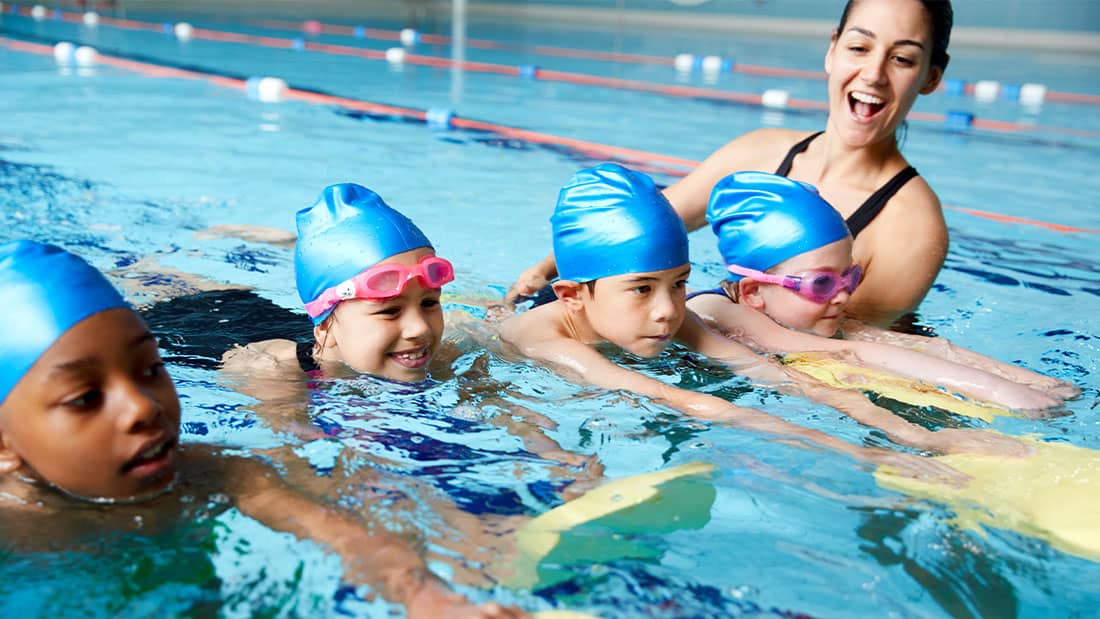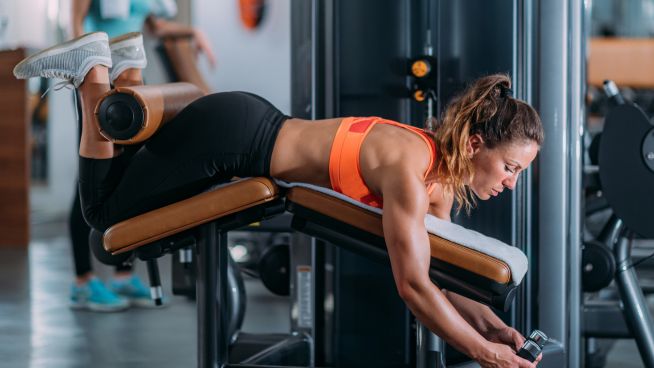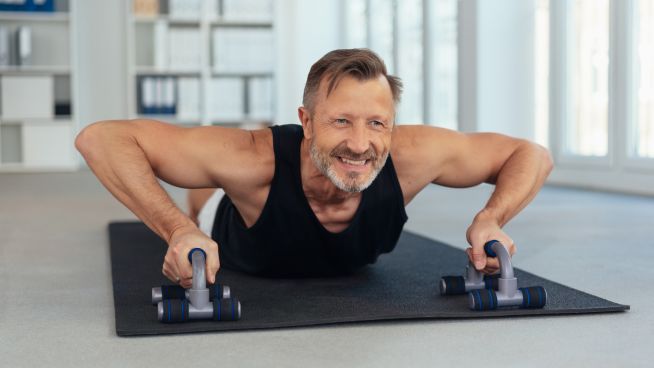Use Sports Nutrition to Heal Your Injury Faster
A key to being a great athlete is staying off the injured list. Athletes who spend the least amount of time hurt spend the most time conditioning their bodies and refining their skills. But sometimes, injuries can’t be avoided.
When an athlete is injured, he or she will usually work with an athletic trainer and a physical therapist to treat and rehabilitate the injury. The “Good Athlete” will rely on treatment—e.g., ice, heat, electrical stimulation, massage—and rehabilitation to get back on the field. The “Great Athlete” will also use sports nutrition to heal his or her body quickly.
Using sports nutrition during injury recovery is a great way to gain an edge over your competition. The following guidelines will help you become a “Great Athlete”—one who uses nutrition to help heal your injuries.
1. Calories count. Many athletes lose their appetite when they’re injured. This could be due to decreased physical activity, medication side effects or sadness. But eating less food is harmful, because the body needs calories as fuel to heal. A serious injury, particularly one that requires surgery, may cause a person to need up to 30 percent more calories than usual.
Calorie needs will vary during a long recovery period, depending on your level of activity. The key is to give yourself enough calories to heal without causing unhealthy weight gain. You can calculate your calorie needs online, but the most accurate recommendation will come from a sports dietitian.
2. Protein rebuilds. Protein does more than rebuild muscle after a hard workout—it also repairs bones, ligaments and tendons. Protein is also important for building new cells. For the best results, eat small portions of protein four to six times a day. Stick to lean protein such as egg whites, turkey, beans, nuts and seeds. These foods provide quality protein without much saturated fat, which slows the healing process. Greasy hamburgers, hot dogs and bacon contain protein—but they also contain saturated fat, making it more difficult to get rid of inflammation.
3. Omega-3s shrink inflammation. Inflammation accompanies nearly all injuries. It’s the body’s way of limiting the severity of an injury, removing injured tissue and initiating repair. After inflammation has accomplished these goals, it needs to be eliminated, because it can build up around the injured area, decrease range of motion and cause unwanted scar tissue. Omega-3 fatty acids are powerful agents that reduce post-injury inflammation.
Injured athletes should consume three to nine grams of omega-3s from salmon, mackerel, tuna, flaxseed and walnuts. Since four ounces of salmon has only two grams of omega-3 fatty acids, injured athletes may want to take a fish oil supplement to meet their needs. Just make sure you read the supplement label carefully.
4. Vitamin C repairs. Vitamin C is an important nutrient for repairing connective tissues and cartilage. It is also helps build scars, blood vessels and even new bone cells. Consume Vitamin C continually throughout the day to give your body this healing compound. One cup of strawberries for breakfast, half of a cup of bell pepper for lunch and one cup of steamed broccoli for dinner will give you plenty of Vitamin C to repair your injured tissues.
5. Vitamin A fights infection. Vitamin A repairs post-workout muscle damage and makes white blood cells. When you have an injury, your body activates your immune system, which produces white blood cells to fight infection. Feeding your body Vitamin A is a form of insurance against post-injury infection. When you are recovering from an injury, eat one cup of sweet potato, carrots, winter squash, spinach, kale, collard greens, Swiss chard or mustard greens each day.
6. Flavonoids prevent cell damage. Flavonoids are powerful antioxidants that prevent cell damage and manage inflammation. They are found in cocoa (not processed with alkali), tea, fruits, vegetables and legumes. A recent study suggested that consuming 20 cherries has an anti-inflammatory effect that relieves pain more effectively than aspirin. This benefit is due to the flavonoids (anthocyanins) in cherries.
If you do not include sports nutrition in your recovery plan, your cells may not get the nutrients they need, which will leave your muscles and connective tissues weak. And if your tissues are weak, not only do they take longer to heal, but they are more susceptible to re-injury. Even the most talented athletes are injured at some point in their careers, and they cannot afford to ignore nutrition. Look upon your next injury as an opportunity to get your nutrition on track for future greatness.
Sources: scandpg.org, huffingtonpost.com, whittakermountaineering.com
Photo: facebook.com
Katie Knappenberger, RD, ATC, is an assistant professor and athletic trainer at Daytona State College (Daytona Beach, Fla.). She earned her master’s degree in nutrition, with a concentration in sports dietetics, from the University of Utah and her bachelor’s degree in athletic training from the University of Wisconsin, La Crosse. She is a member of the Collegiate and Professional Sports Dietitians Association and the Sports Dietetic Practice Group of the Academy of Nutrition and Dietetics. Follow her on Twitter (@KatieRdATC) for sports nutrition tips and cutting-edge research updates.
RECOMMENDED FOR YOU
MOST POPULAR
Use Sports Nutrition to Heal Your Injury Faster
A key to being a great athlete is staying off the injured list. Athletes who spend the least amount of time hurt spend the most time conditioning their bodies and refining their skills. But sometimes, injuries can’t be avoided.
When an athlete is injured, he or she will usually work with an athletic trainer and a physical therapist to treat and rehabilitate the injury. The “Good Athlete” will rely on treatment—e.g., ice, heat, electrical stimulation, massage—and rehabilitation to get back on the field. The “Great Athlete” will also use sports nutrition to heal his or her body quickly.
Using sports nutrition during injury recovery is a great way to gain an edge over your competition. The following guidelines will help you become a “Great Athlete”—one who uses nutrition to help heal your injuries.
1. Calories count. Many athletes lose their appetite when they’re injured. This could be due to decreased physical activity, medication side effects or sadness. But eating less food is harmful, because the body needs calories as fuel to heal. A serious injury, particularly one that requires surgery, may cause a person to need up to 30 percent more calories than usual.
Calorie needs will vary during a long recovery period, depending on your level of activity. The key is to give yourself enough calories to heal without causing unhealthy weight gain. You can calculate your calorie needs online, but the most accurate recommendation will come from a sports dietitian.
2. Protein rebuilds. Protein does more than rebuild muscle after a hard workout—it also repairs bones, ligaments and tendons. Protein is also important for building new cells. For the best results, eat small portions of protein four to six times a day. Stick to lean protein such as egg whites, turkey, beans, nuts and seeds. These foods provide quality protein without much saturated fat, which slows the healing process. Greasy hamburgers, hot dogs and bacon contain protein—but they also contain saturated fat, making it more difficult to get rid of inflammation.
3. Omega-3s shrink inflammation. Inflammation accompanies nearly all injuries. It’s the body’s way of limiting the severity of an injury, removing injured tissue and initiating repair. After inflammation has accomplished these goals, it needs to be eliminated, because it can build up around the injured area, decrease range of motion and cause unwanted scar tissue. Omega-3 fatty acids are powerful agents that reduce post-injury inflammation.
Injured athletes should consume three to nine grams of omega-3s from salmon, mackerel, tuna, flaxseed and walnuts. Since four ounces of salmon has only two grams of omega-3 fatty acids, injured athletes may want to take a fish oil supplement to meet their needs. Just make sure you read the supplement label carefully.
4. Vitamin C repairs. Vitamin C is an important nutrient for repairing connective tissues and cartilage. It is also helps build scars, blood vessels and even new bone cells. Consume Vitamin C continually throughout the day to give your body this healing compound. One cup of strawberries for breakfast, half of a cup of bell pepper for lunch and one cup of steamed broccoli for dinner will give you plenty of Vitamin C to repair your injured tissues.
5. Vitamin A fights infection. Vitamin A repairs post-workout muscle damage and makes white blood cells. When you have an injury, your body activates your immune system, which produces white blood cells to fight infection. Feeding your body Vitamin A is a form of insurance against post-injury infection. When you are recovering from an injury, eat one cup of sweet potato, carrots, winter squash, spinach, kale, collard greens, Swiss chard or mustard greens each day.
6. Flavonoids prevent cell damage. Flavonoids are powerful antioxidants that prevent cell damage and manage inflammation. They are found in cocoa (not processed with alkali), tea, fruits, vegetables and legumes. A recent study suggested that consuming 20 cherries has an anti-inflammatory effect that relieves pain more effectively than aspirin. This benefit is due to the flavonoids (anthocyanins) in cherries.
If you do not include sports nutrition in your recovery plan, your cells may not get the nutrients they need, which will leave your muscles and connective tissues weak. And if your tissues are weak, not only do they take longer to heal, but they are more susceptible to re-injury. Even the most talented athletes are injured at some point in their careers, and they cannot afford to ignore nutrition. Look upon your next injury as an opportunity to get your nutrition on track for future greatness.
Sources: scandpg.org, huffingtonpost.com, whittakermountaineering.com
Photo: facebook.com
Katie Knappenberger, RD, ATC, is an assistant professor and athletic trainer at Daytona State College (Daytona Beach, Fla.). She earned her master’s degree in nutrition, with a concentration in sports dietetics, from the University of Utah and her bachelor’s degree in athletic training from the University of Wisconsin, La Crosse. She is a member of the Collegiate and Professional Sports Dietitians Association and the Sports Dietetic Practice Group of the Academy of Nutrition and Dietetics. Follow her on Twitter (@KatieRdATC) for sports nutrition tips and cutting-edge research updates.


